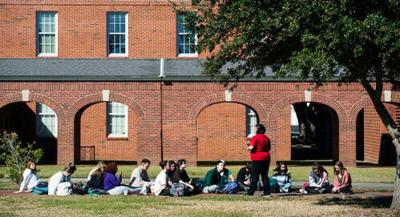The death of any young person is tragic, but hopefully the University of Louisiana at Lafayette can turn the recent tragedy experienced by the school’s community into a chance to grow.
This week, the university flew its flags at half-staff in memory of those it lost this year, including Basil Brown, whose death by suicide April 7 has touched off a round of soul-searching about how the university’s notification and welfare check systems fell short in this case.
We agree the university’s initial response to Brown’s death was woefully lacking. Hours after the UL police department responded to the scene at a parking garage where Brown was found dead, the university had no official response to what happened. When it did issue a statement, it left more questions than it answered. An email to faculty, staff and students said only that an “unspeakable loss” had occurred on the campus.
For the friends and loved ones of Brown, a 22-year-old computer science major who identified as transgender, their death wasn’t unspeakable. And in the days after, crowds gathered to remember a life that had a profound effect on others. Friends recalled a clarinet player who wore creative outfits, a sympathetic friend who could talk for hours, an advocate for the LGBTQ+ community and those with disabilities.
Some also wondered if more could have been done to get Brown the help needed when they were clearly in distress. A day before the suicide, UL police met with Brown for a welfare check after friends noticed a worrying social media post. UL police said their hands were tied after Brown denied knowledge of the Snapchat post that made reference to suicide and denied having suicidal thoughts. But friends still question why more wasn’t done.
In a final post on Instagram, Brown also alleged that that they had been raped, naming three individuals, at least one of whom is a faculty member at the university. The university said it is investigating the allegation but would not comment further.
Meanwhile, a coalition has formed to call for change at the university, and there are signs that administration officials are listening. We hope Brown’s death can lead to a re-evaluation of how the university meets the mental health needs of its students and that there will be a full investigation of the allegations raised by Brown.
Universities should be a haven for young people to learn and grow. Brown’s death shows that UL isn’t providing that for all students. It can change, but only if it doesn't turn away from what this tragedy has to teach.
Resources are available for those dealing with a mental health crisis. If you or someone you know is struggling, the Suicide and Crisis Lifeline can be reached by phone or text at 988.

